Report Highlights
- Right to Repair is non-partisan: Democrats, Republicans, and Independents all overwhelmingly support Right to Repair legislation
- 73% of Republicans, 81% of Democrats, and 73% of Independents support Right to Repair legislation, making the issue a rare non-partisan subject in an age of polarization.
- Support for Right to Repair is strong amongst households of all income levels
- There's no significant difference in support for Right to Repair legislation between households with different income levels.
- Many Americans aren't very familiar with Right to Repair
- 55.4% of respondents hadn't heard of Right to Repair, while 28.7% of respondents were at least somewhat familiar with Right to Repair.
- Android users show slightly more enthusiasm for Right to Repair legislation
- Support amongst both iOS and Android users for Right to Repair is strong, but more Android users "strongly" agree with the idea of Right to Repair legislation.
- The more people know about Right to Repair, the more they support Right to Repair legislation
- In a promising sign for the movement, the more consumers know about Right to Repair, the greater their support for legislation. However, the issue isn't polarizing: there wasn't a corresponding increase in the number of people who disagree with legislation as a result of knowing more about Right to Repair.
Survey Methodology
We commissioned an online survey of 1,065 American adults on March 30th by SurveyMonkey, using their gender and age-normalized panel to sample the wider American population. The results reflect a nationally representative sample with a confidence interval of 3% (except as noted, where only a subset of respondents were included). More information about SurveyMonkey’s survey methodology is available here.
About this Report
In a time where more and more people are concerned with climate change and the environmental impact of consumption, the Right to Repair movement has gained considerable support in the US. There has been a sharp uptick in mainstream coverage about software locks that prevent farmers from repairing their tractors, and everyday Americans repairing consumer electronics like phones.
Right to Repair has been in the news most recently as ventilators in the US federal government’s stockpile and in hospitals around the country lay broken and unused due to the inaccessibility of repair manuals, software, and parts. Advocates and supporters have worked to get more than 30 US states to introduce Right to Repair bills, but none have yet passed.
Our CEO, Sina Khanifar, is a board member at The Repair Association. We wanted to understand exactly how many people have heard of Right to Repair, whether they support Right to Repair legislation, and whether support breaks along party lines.
About Waveform
Founded in 2007, Waveform is a leading online reseller of cell phone boosters, small cells, and a systems integrator of in-building active and passive distributed antenna systems. Over the last 13 years, Waveform has helped over 20,000 customers improve cell service in buildings of all sizes.
Survey Results
We first wanted to understand exactly what percentage of Americans have heard of Right to Repair. As an emerging issue, a majority of respondents had not heard about Right to Repair, despite increased media attention. However, this also presents an opportunity: the idea of Right to Repair is new to many people, and getting the word out further may win them more support.
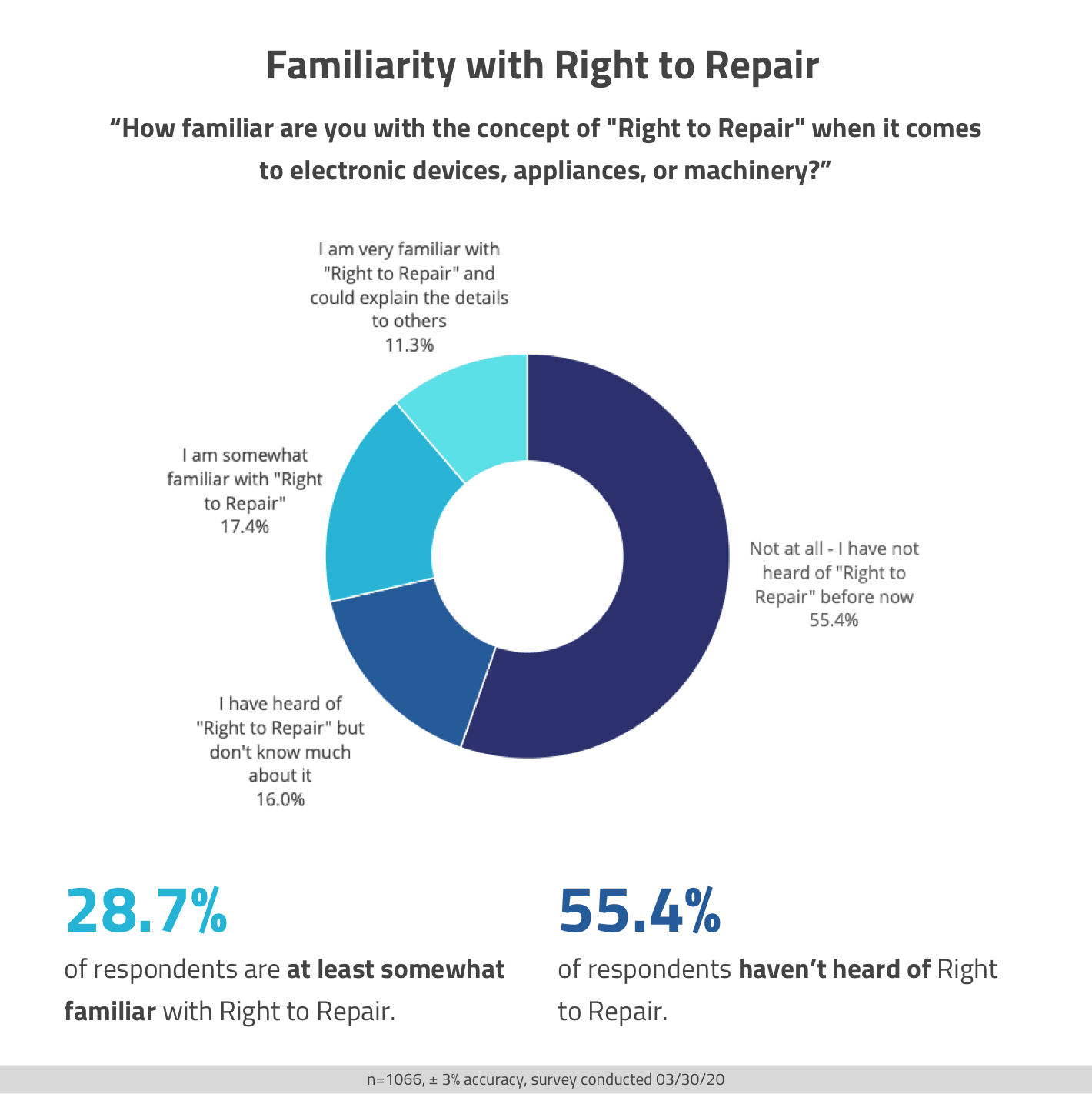
Since many people aren't familiar with Right to Repair, we provided a brief explanation of the idea to our survey panel. We then asked them whether, based on this description or their existing knowledge, they would support Right to Repair legislation.
Right to Repair legislation received overwhelming support and almost no meaningful opposition from poll respondents. 74.5% of respondents said they would support Right to Repair legislation, while 23.6% were neutral on the topic. Only 1.9% of respondents said they wouldn't support Right Repair legislation.
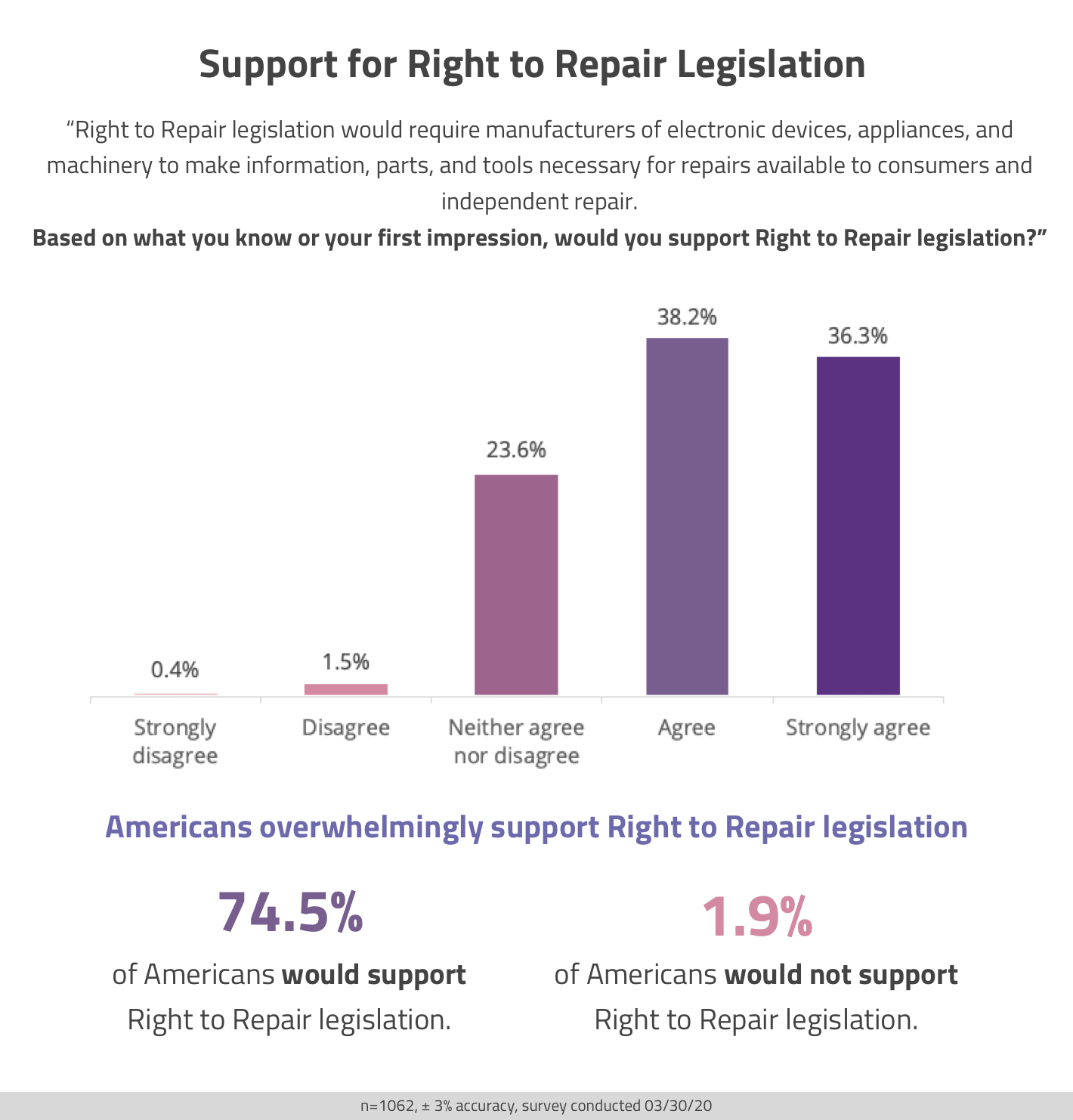
We wanted to find out whether support would show the same division amongst party lines as other political issues, so we also asked our panel about their political party affiliation. In the graphs below, we compare support for Right to Repair legislation between respondents belonging to each party.
There was broad support amongst all parties. 73.1% of Republicans, 81.2% of Democrats, and 73.2% of independents said they would support Right to Repair legislation. Clearly, Right to Repair is not a partisan issue.
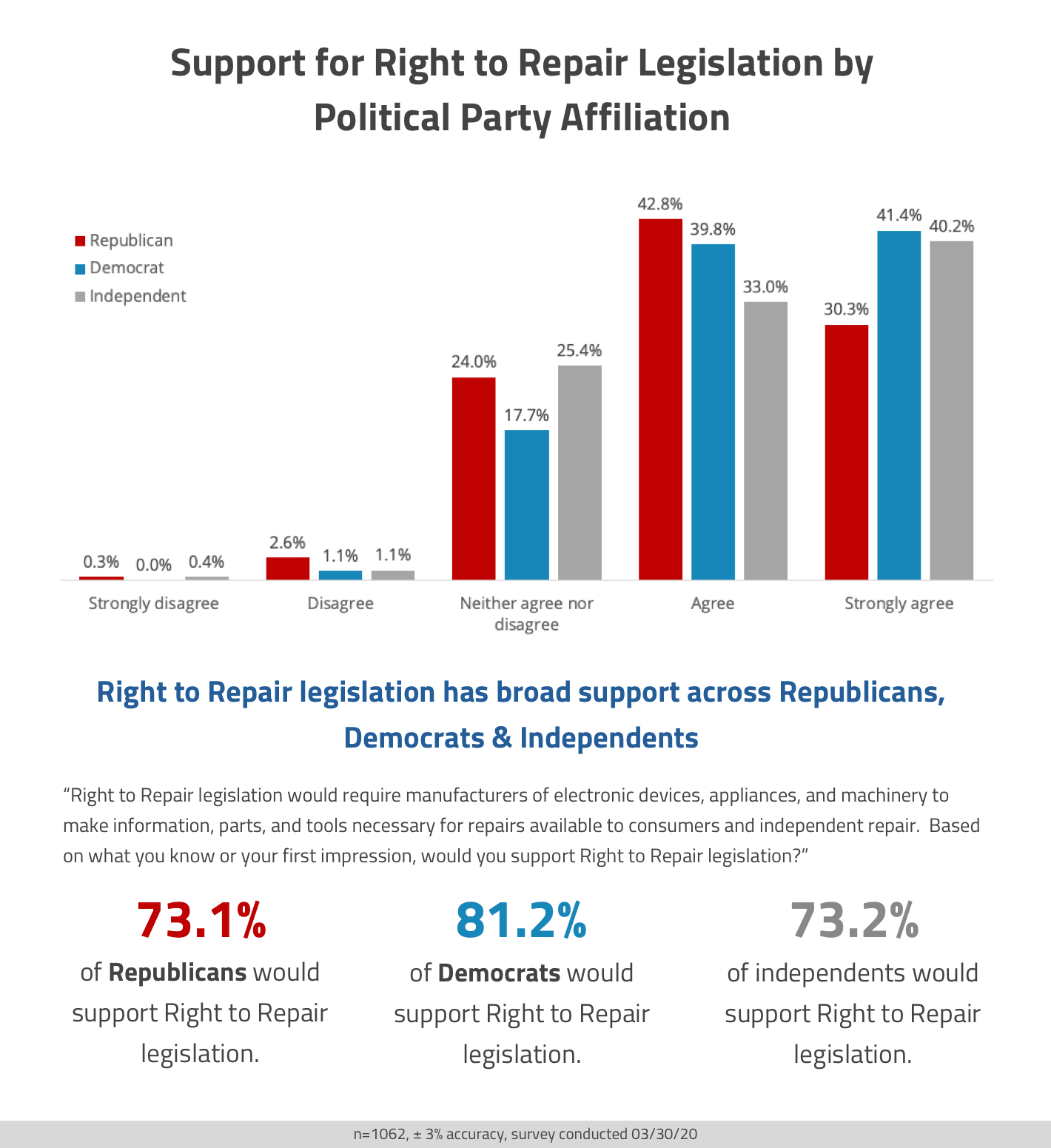
We also segmented the results on the basis of household income. Again, the results here show very little variation: no matter their income level, Americans broadly supported Right to Repair legislation.
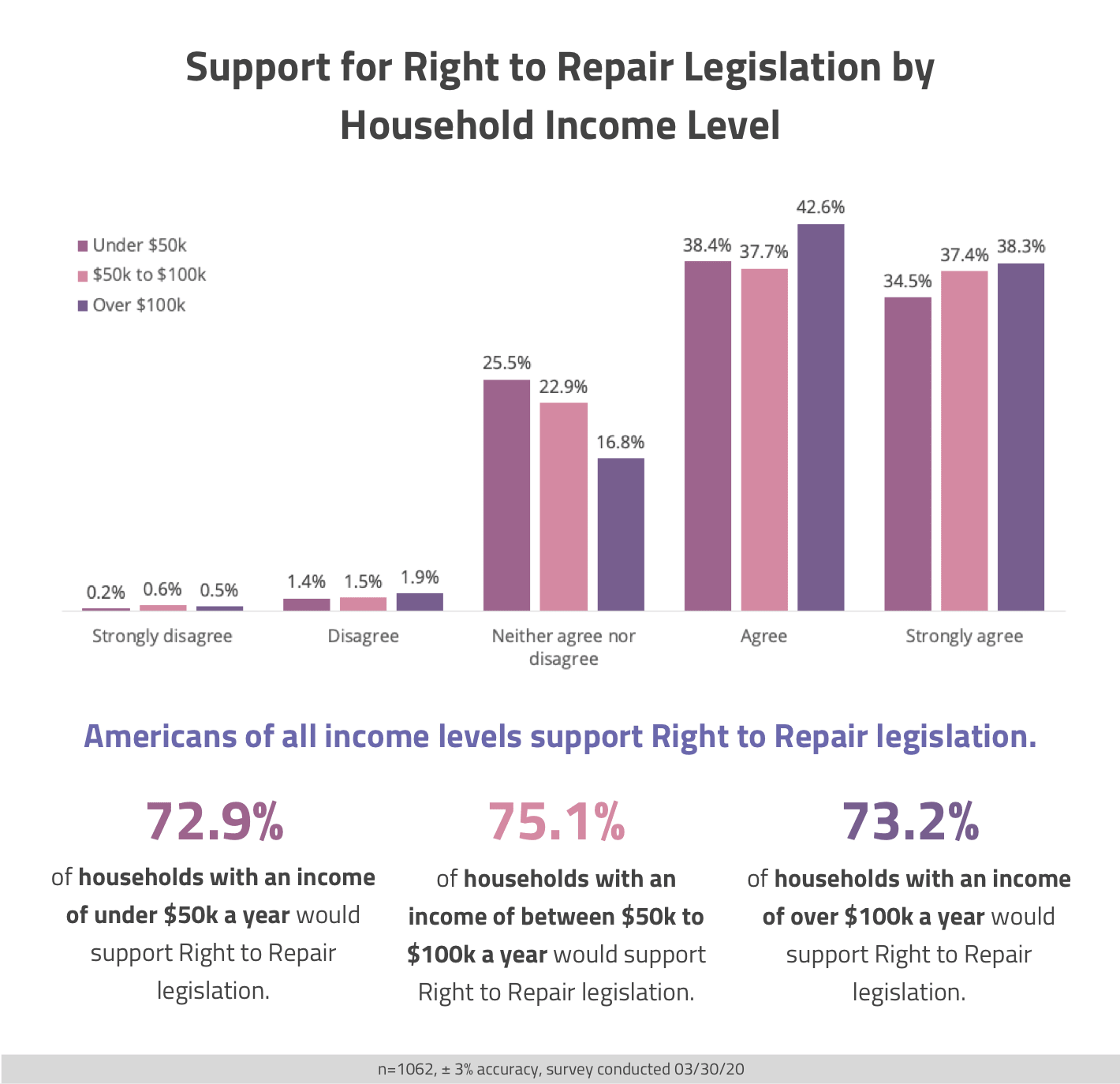
Additionally, we segmented the results by the respondents mobile operating system. Android users support Right to Repair slightly more strongly than Android users. 41.7% of Android users strongly agreed with the idea of supporting Right to Repair legislation, whereas 32.1% of iOS users strongly agreed with the same.
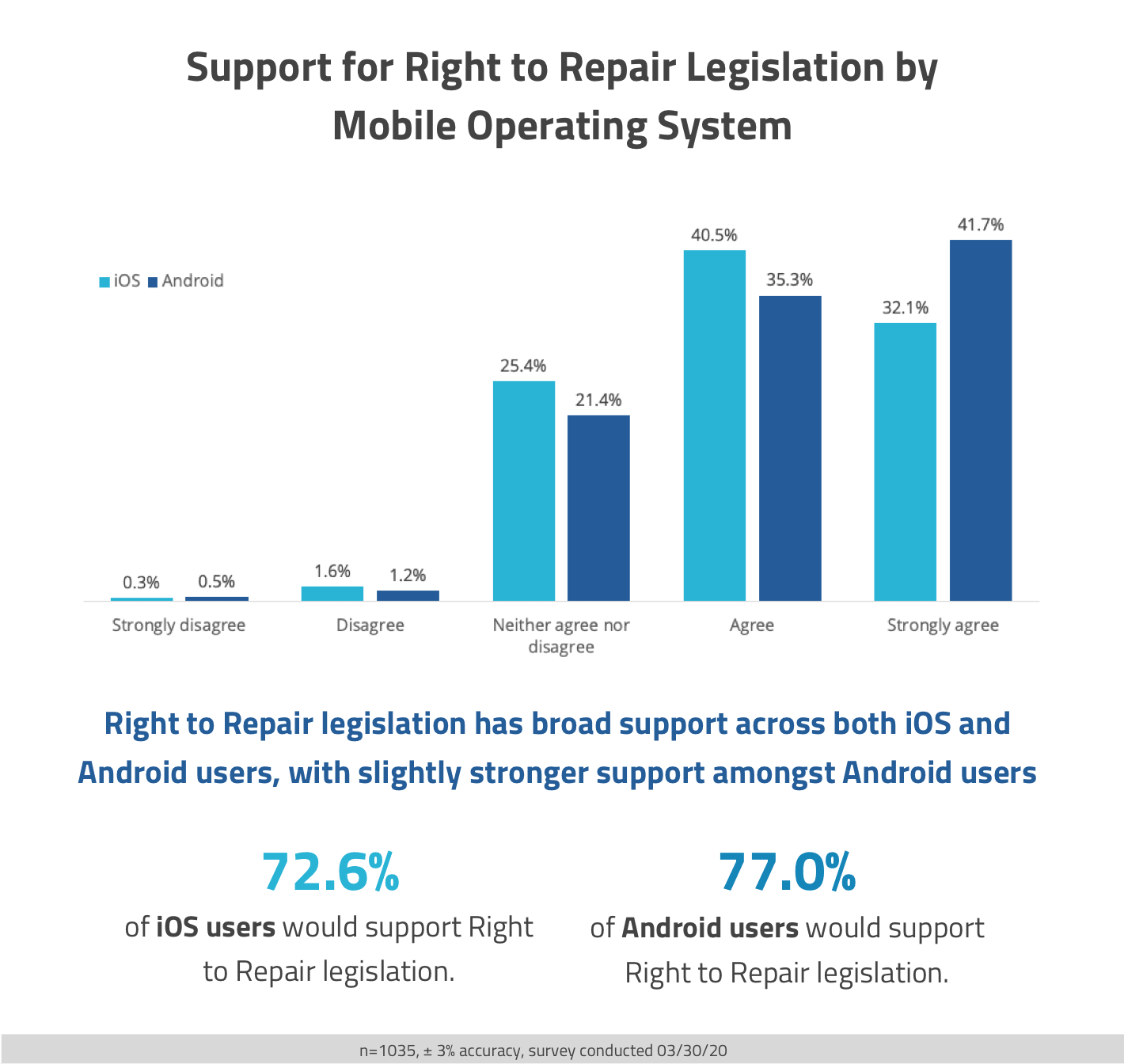
Finally, we wanted to see whether there were different levels of support amongst those who knew more about Right to Repair.
The results on this question were very clear: those who knew the most about Right to Repair supported legislation the most strongly. 90% of respondents who said they were "very familiar with Right to Repair and could explain the details to others" said they supported Right to Repair legislation.
This final result is particularly important: the more people understand Right to Repair, the greater their support for codifying the idea into legislation. As Right to Repair advocates continue to spread the word, we should see even greater support for legislation over time.
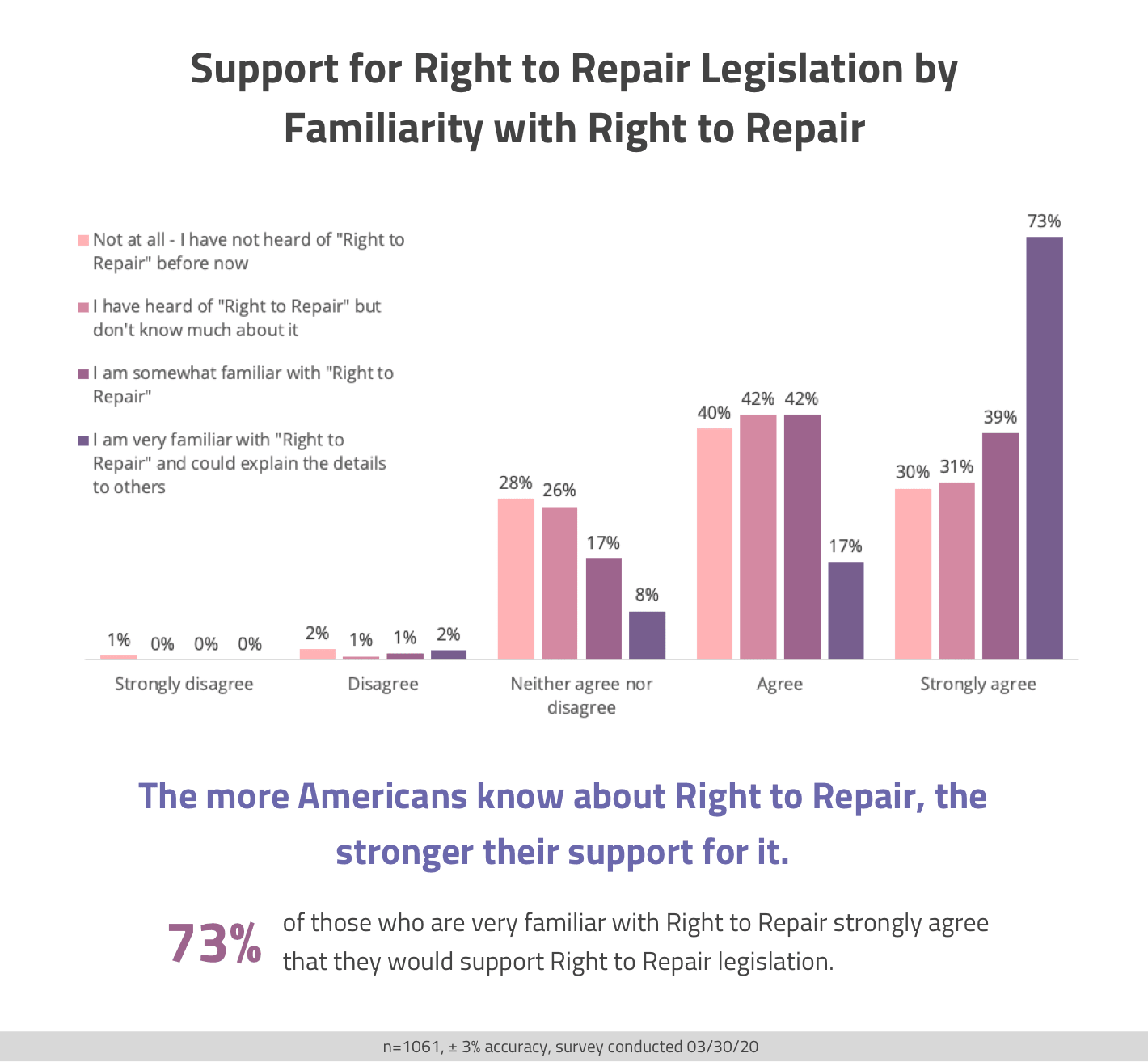
Further reading
Past Reports
Guides
At Waveform, we pride ourselves on writing the most detailed, technical guides on everything related to improving cell signal. Here are just a few of our most popular articles:


















































